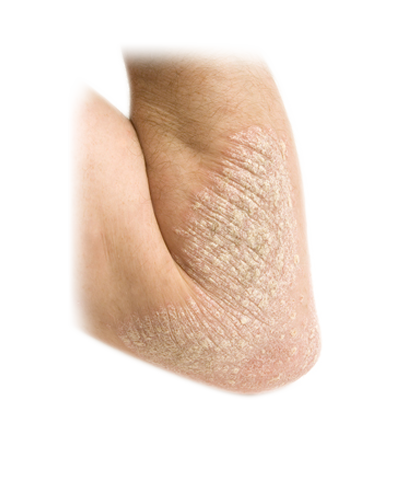Psoriasis
Psoriasis
Psoriasis is a skin condition that causes red, flaky, crusty patches of skin covered with silvery scales. These patches normally appear on your elbows, knees, scalp and lower back, but can appear anywhere on your body. Most people are only affected with small patches. In some cases, the patches can be itchy or sore. It can start at any age but most often develops in adults under 35 years old, and affects men and women equally.
The severity of psoriasis varies person to person. For some it's just a minor irritation but, for others, it can affect for their quality of life. Psoriasis is a long-lasting (chronic) disease that usually involves periods when you have no symptoms or mild symptoms, followed by periods when symptoms are more severe.
People with psoriasis have an increased production of skin cells. Skin cells are normally made and replaced every 3 to 4 weeks, but in psoriasis this process only takes about 3 to 7 days.
It's related to a problem with the immune system. The immune system is your body's defense against disease and infection, but for people with psoriasis, it attacks healthy skin cells by mistake. Psoriasis can run in families, although the exact role genetics plays in causing psoriasis is unclear.
Many people's psoriasis symptoms start or become worse because of a certain event, known as a "trigger". Possible triggers of psoriasis include an injury to your skin, throat infections and using certain medicines. The condition isn't contagious, so it can't be spread from person to person.
In most cases, the first treatment used will be a topical treatment, such as vitamin D analogues or topical corticosteroids. Topical treatments are creams and ointments applied to the skin.If these aren't effective, or your condition is more severe, a treatment called phototherapy may be used. Phototherapy involves exposing your skin to certain types of ultraviolet light(Photo Therapy).In severe cases, where the above treatments are ineffective, systemic treatments may be used. These are oral or injected medicines that work throughout the whole body.

Frequently Asked Questions
Get Appointment
Time Shedule
Working Hours
- Mon - Sun : 9:00am - 06:00pm
- Closed on Poya and Mercantile holidays